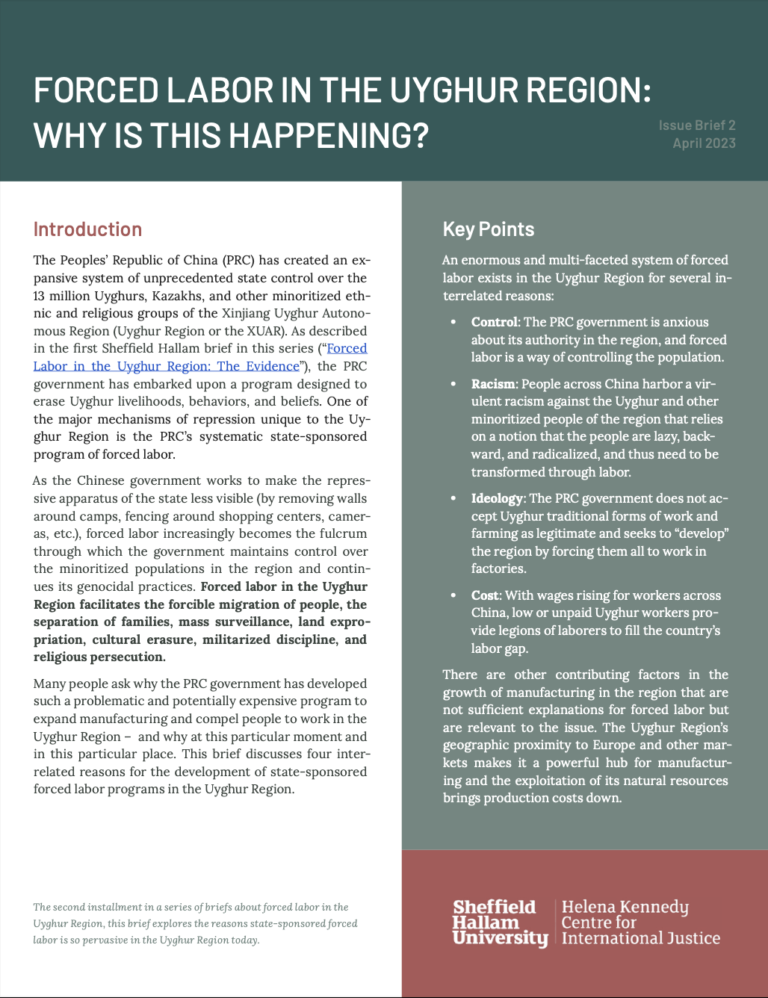The Peoples’ Republic of China (PRC) has created an ex- pansive system of unprecedented state control over the 13 million Uyghurs, Kazakhs, and other minoritized eth- nic and religious groups of the Xinjiang Uyghur Autono- mous Region (Uyghur Region or the XUAR). As described in the first Sheffield Hallam brief in this series (“Forced Labor in the Uyghur Region: The Evidence”), the PRC government has embarked upon a program designed to erase Uyghur livelihoods, behaviors, and beliefs. One of the major mechanisms of repression unique to the Uy- ghur Region is the PRC’s systematic state-sponsored program of forced labor.
As the Chinese government works to make the repres- sive apparatus of the state less visible (by removing walls around camps, fencing around shopping centers, camer- as, etc.), forced labor increasingly becomes the fulcrum through which the government maintains control over the minoritized populations in the region and contin- ues its genocidal practices. Forced labor in the Uyghur Region facilitates the forcible migration of people, the separation of families, mass surveillance, land expro- priation, cultural erasure, militarized discipline, and religious persecution.
Many people ask why the PRC government has developed such a problematic and potentially expensive program to expand manufacturing and compel people to work in the Uyghur Region – and why at this particular moment and in this particular place. This brief discusses four inter- related reasons for the development of state-sponsored forced labor programs in the Uyghur Region.

